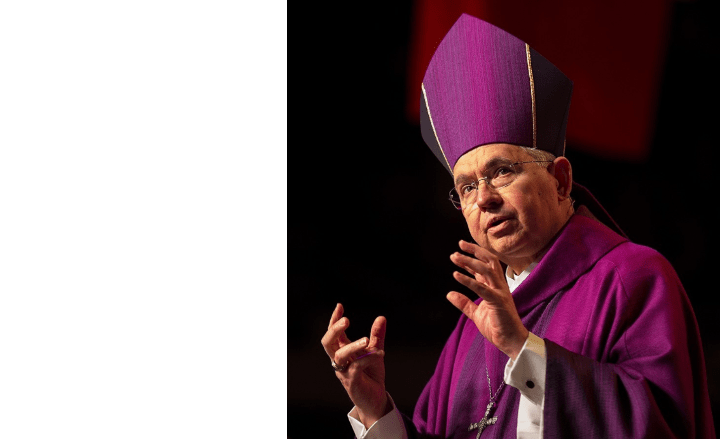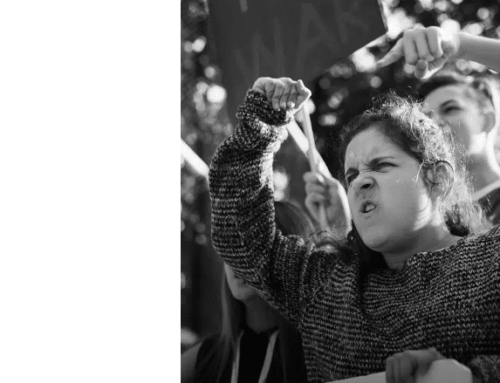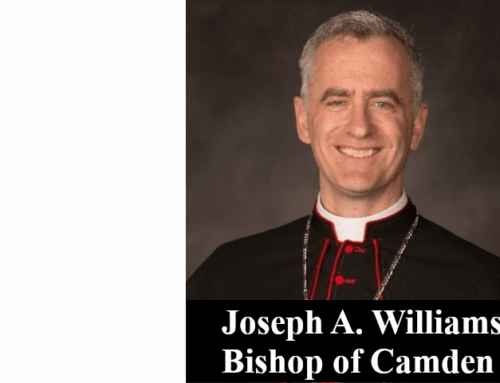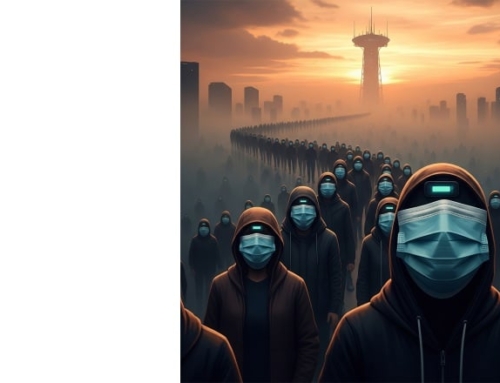Catholic League President Bill Donohue comments on the great work of Archbishop Gomez:
The National Catholic Reporter, which works hard to undercut the Church’s teachings on many issues, has named Los Angeles Archbishop José Gomez as their Newsmaker of 2021. The dissidents are angry at him for a speech he gave on November 4th. Here is my response.
On November 4, Los Angeles Archbishop José Gomez made one of the most brilliant addresses given in Catholic circles in recent memory. His speech was given at the Congress of Catholics and Public Life in Madrid, Spain.
Like so many other Catholic intellectuals, Gomez is rightly concerned about the radical secularization that has taken root in the Western world. Unlike most of them, he has also been in the trenches. I know because the Catholic League has assisted him in his efforts to combat the agenda of secular zealots, made plain, for instance, in attempts to break the seal of the confessional.
Gomez takes direct aim at the ruling class, those who occupy the command posts in the United States and Europe. “In the elite worldview,” he says, “there is no need for old-fashioned belief systems and religions. In fact, as they see it, religion, especially Christianity, only gets in the way of the society they hope to build.” He offers as an example the “cancel culture” that is so prevalent.
There can be no denying the veracity of Gomez’s observation. Anyone who dares challenge the conventional wisdom, on issues ranging from critical race theory to gender ideology, is a candidate for censorship. It is not those who promote these pernicious views who are being silenced, it is those who challenge them.
Sociologists have long understood that when the dominant cultural strain in society atrophies, it is filled with an ersatz philosophical or religious variant. Power vacuums never last long. Thus, Gomez is right to call attention to the extent to which the de-Christianization of the West has been replaced by movements such as “social justice,” “wokeness,” “identity politics” and the like.
“They claim,” as he perceptively notes, “to offer what religion provides.” Indeed, they provide “a sense of meaning, a purpose for living, and the feeling of belonging to a community.” This is exactly what the great sociologists have been saying for over a hundred and fifty years. Sadly, it is now happening in the United States.
Gomez’s critics take umbrage at his comment that the reigning movements function as a new religion. He properly notes that “Today’s critical theories and ideologies are profoundly atheistic.” Anyone who follows what the proponents of these ideologies espouse know that Gomez is right. Indeed, they don’t even try to hide their animus against Christianity.
John McWhorter is a Columbia University professor and he understands what Gomez is talking about. An African American, he has written a book, Woke Racism: How a New Religion Has Betrayed Black America.” Both men call attention to identity politics and radical race theories—which judge people on the basis of their race, not their individual characteristics. These ideological currents not only profoundly racist in themselves, they satisfy the religious yearnings of those drawn to them.
As a man of God, Gomez wants us to repair to the Gospel, not to “these new religions of social justice and political identity.” But to his critics, many of whom are Catholic theologians, what he says is verboten. Some no doubt would like to cancel him.
Franciscan Father Daniel Horan is upset with Gomez for making a speech that exhibits a “shocking disconnection from reality.” Too bad he never says what the disconnect is. He cites for support a left-wing Jesuit theologian, Fr. Bryan Massingale, who, according to Horan, said the problem is that bishops like Gomez “have the audacity to speak with unearned authority about issues they clearly do not understand.”
It would be hard to find a more arrogant example of professorial elitism than this. Readers should know that Horan and Massingale spend much of their time writing and lecturing about homosexual and transgender issues. Gomez spends much of his time writing and lecturing about the Catholic Church: He is president of the United States Conference of Catholic Bishops. Thus has he earned the authority to speak about any issue of interest to the Catholic community.
Fr. Tom Reese wonders why Gomez “abandoned” the term “social justice” to those he considers the enemy of religion, especially when social justice has a place in the “long history of the church’s social teaching.” This is a serious misreading of Gomez’s address. He has not abandoned social justice—the term has been hijacked by those whose ideology sharply departs from the Church’s understanding of it.
The late Fr. Richard John Neuhaus wrote a seminal book, The Naked Public Square, that describes what happens when a society rooted in the Judeo-Christian heritage weakens. The cultural holes are destined to be filled with exactly the kinds of secular movements that Gomez alludes to in his speech. The only difference is that even someone as bright as Neuhaus did not envision how quickly and radically the transformation would be.
That is what make Gomez’s presentation so valuable. He sees what is going on in the United States and Europe and beckons us to get back to basics, the basics as outlined by Jesus. If we do not resist the forces of decadence and division, the future will soon become unrecognizable.







